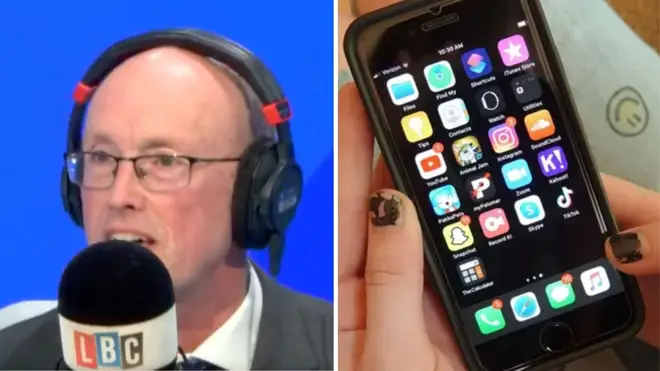
Paul Brand 10am - 12pm
18 April 2024, 19:08

Access to social media has led to more children being radicalised, the UK’s terror watchdog has told LBC, as he hit out at the lowering of WhatsApp’s age limit.
Jonathan Hall KC said the move to allow 13-year-olds access to the encrypted messaging service risks exposing more children to unregulated content.“To me that's an extraordinary thing to do,” he told Tom Swarbrick on LBC.
“It's clear that children are particularly susceptible to terrorism content. Children who are particularly unhappy – a round peg in a square hole – they’re looking for meaning in their lives and for some, that could be an extremist identity.
“By lowering the age of the user from 16 to 13 for WhatsApp, effectively they're exposing three more years within that age group, 13 to 16 to content that they cannot regulate.”
Meta made the announcement that 13-year-olds would be allowed onto the platform in February, with the move coming into effect in the UK and EU on Wednesday.
Read more: Florida bans social media for under-14s in restrictive new law for children

Children are 'particularly susceptible' to dangerous online content, says Jonathan Hall KC.
Some campaigners reacted with anger while the tech company, which also owns Facebook and Instagram, insisted protections were in place.Jonathan Hall, who is the UK’s independent reviewer of terror legislation, raised the alarm over the increasing use of the internet among young people, which he says contributed to a record 42 children being arrested for terror offences last year.
“The internet is like a fantastic zoo – it's full of wonderful things and you can learn so many things,” he told Tom.
“But some of the cages for some of the animals are open and I think we're beginning to realise that the lion cage is open, and the tiger cage is open.
“And so, amongst all this wonderful information that we can get, there are lurking dangers and children are just not set up to deal with the stuff that we as adults, perhaps can.”
Asked if he believed the number of children arrested for terror offences last year would be lower if they didn’t have access to social media, he said: “Yes, absolutely, but it’s not just social media, it’s the dark web.”
“I think one thing we're learning about the internet, is that it's not like a load of bad people sitting there saying what can I do now to radicalise some child.“It's also children who are saying I quite like this stuff and they'll go looking for it.”